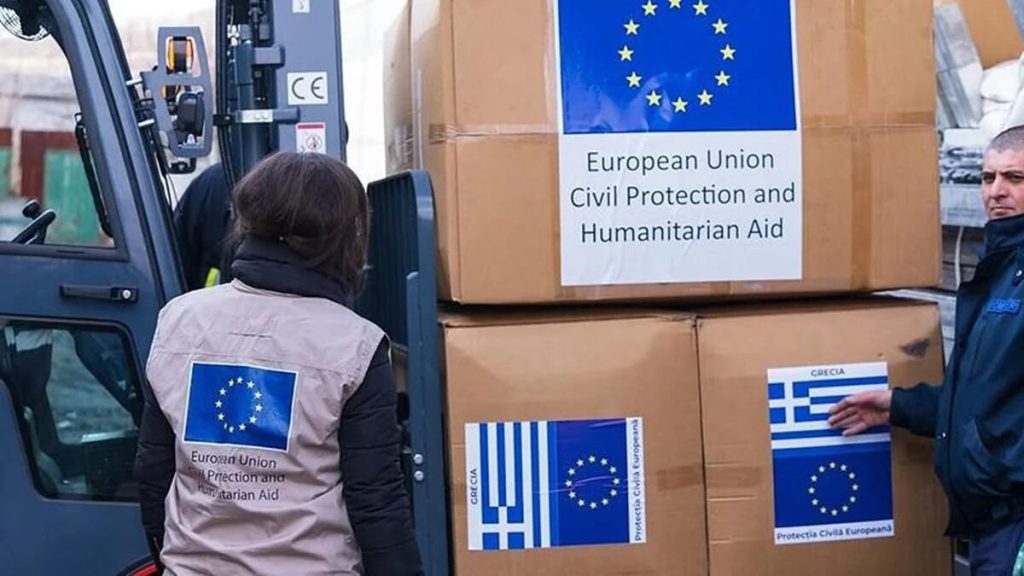
EU Allocates €510 Million for Humanitarian Aid in Nigeria and Other Sub-Saharan African Nations
In a bold move to address the escalating humanitarian crises in Nigeria and other sub-Saharan African nations, the European Union (EU) has announced a substantial allocation of €510 million as part of its broader humanitarian assistance package for 2025. This funding aims to alleviate suffering in regions plagued by conflict, poverty, and environmental challenges. However, skepticism looms regarding the efficacy and transparency of such aid initiatives.
Details of the Funding Allocation
The announcement, made on January 16, 2025, is part of a larger humanitarian budget totaling €1.9 billion for the year. The allocation for sub-Saharan Africa specifically targets vulnerable populations across various regions, including West and Central Africa, the Sahel, and the Lake Chad basin. The EU’s commitment reflects an ongoing effort to support over 300 million people worldwide who require humanitarian assistance this year.
Concerns About Misallocation
Critics have raised concerns about potential misuse of funds, likening such large-scale aid packages to “Trojan Horses” that may not reach those in dire need. Historical precedents exist where international aid has been misallocated or siphoned off by corrupt officials or organizations. For instance, during previous humanitarian efforts in Nigeria, reports surfaced detailing how funds intended for relief were misappropriated, leaving many without essential services.
EU’s Commitment to Transparency
Despite these concerns, EU officials emphasize their commitment to ensuring that aid reaches its intended recipients. Hadja Lahbib, the Commissioner for Equality, Preparedness and Crisis Management, stated that the EU aims to collaborate with trusted partners on the ground—including UN agencies and local NGOs—to deliver life-saving assistance effectively. “Funding is not enough—we need to be able to reach the most vulnerable,” she urged, calling for adherence to International Humanitarian Law to facilitate access to those in need.
The Challenges Ahead
The challenges facing humanitarian efforts in sub-Saharan Africa are immense. Nigeria alone grapples with multiple crises: ongoing violence from Boko Haram insurgents in the northeast, widespread displacement due to intercommunal conflicts, and severe food insecurity exacerbated by climate change. The United Nations estimates that over 23 million people in Nigeria require urgent humanitarian assistance this year.
Moreover, the Sahel region continues to experience instability as extremist groups exploit socio-economic vulnerabilities. Countries like Mali and Burkina Faso struggle with rising violence and displacement, creating a dire need for international support. The EU’s funding aims to address these multifaceted issues by providing food security, health services, and protection for displaced populations.
A Call for Sustainable Solutions
However, critics argue that simply increasing financial aid does not address the underlying causes of these crises. Structural issues such as governance failures, corruption, and lack of accountability persistently hinder effective aid delivery. In light of this, some experts advocate for a shift towards more sustainable development approaches rather than merely reactive humanitarian assistance.
As part of its renewed partnership with Africa established during the EU-African Union Summit in February 2022, the EU is also focusing on long-term strategies that promote economic growth and stability across the continent. This includes investments in sustainable energy projects and initiatives aimed at improving governance and human rights conditions.
The Importance of Local Involvement
The potential impact of this funding on local communities remains uncertain. While financial assistance can provide immediate relief, it is crucial that it is accompanied by robust monitoring mechanisms to ensure transparency and accountability. Local stakeholders must be involved in decision-making processes to tailor interventions that genuinely meet community needs.
A Critical Moment for Aid
In conclusion, while the EU’s allocation of €510 million for humanitarian aid in Nigeria and other sub-Saharan African nations represents a significant commitment to addressing urgent crises, it also raises important questions about effectiveness and accountability. As global attention turns towards Africa’s challenges, it is imperative that aid efforts prioritize sustainable solutions over temporary fixes—ensuring that support translates into meaningful change for those who need it most.

